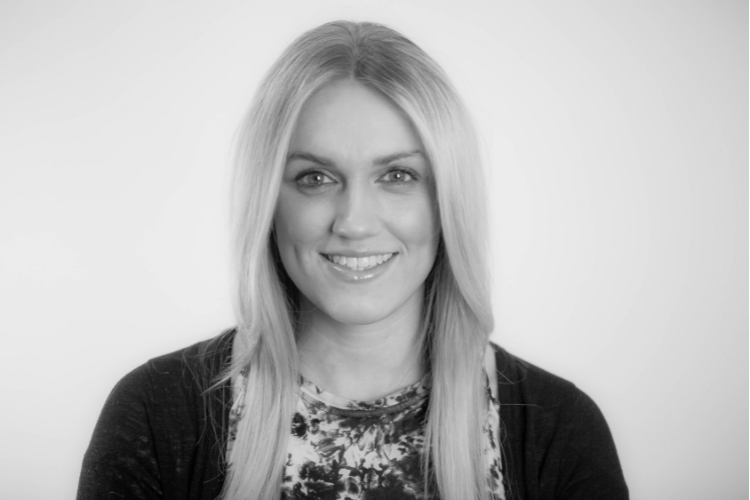
Amy Lane, UK Talent Director at Momentum Worldwide
With many of us now working from home, what supports are Momentum putting in place around hybrid working, i.e., how do we ensure employees get a good work/life balance?
“We need to reframe the phrase ‘hybrid work’. Flexible working had been happening successfully for years before the pandemic, so how do we learn from it?
What we’ve seen in past years is that we are able to be highly productive by moving across different locations—home, office, other locations—when we move with intention to support our best work. This natural shift in our work habits was at the root of how we introduced working from anywhere. Our employees can choose to work in the office (WFO), from home (WFH) or at various Momentum Inspiration Work Sites (IWS) to support their best work product. We made sure we did not force employees to return to the office for a set number of days. Instead, we’ve empowered our managers and employees to determine where the best location is for them based on their teams, projects and tasks for that day.
We also needed to move our thinking away from ‘RTO’ and move to ‘how we optimise the office (OTO)’. When we asked employees what they believe the office is for, they saw it as a site for ideas and sociability. So we reimagined our office space by building more collaboration areas and reduced the number of desks so it was easier for employees to connect and be creative.
Another key takeaway for Momentum was that in a borderless world, boundaries are more important than ever. During the pandemic, the boundaries between work and personal life easily became blurred. We understood that we needed to create some company-wide boundaries to encourage employees to do the same for themselves. So we’ve Introduced no meetings on Monday mornings and Friday afternoons to protect employee weekends and implemented daily one-hour no-meeting lunch breaks.
Our Agile Working Policy emphasizes that employees can flex their hours to make their working day work for them by tweaking their daily activities to fit their chronotype so they can personalise their routine to live and work at their best.
By no means have we cracked the code of hybrid working! We know flex is in a state of flux and we are in the process of experimentation. It will be very interesting to see how this progresses over the next few years and understand the impact of today’s decisions.
Despite the fact that over 200 million workdays are lost due to mental health conditions each year, mental health remains a taboo subject. What can leadership be doing to encourage open conversations and break this taboo?
Empathy and communication are essential for all leaders.
It is key for a leader to be a role model when it comes to health and wellbeing by using tools to handle stress and knowing when to say no and how to set healthy boundaries. Transparent leaders who share their own struggles are also essential to break taboos.
It is important that all of our leaders are trained on key areas of mental wellbeing. They need to know what to look for and be able to spot the signs or stress. They need to actively listen without judgment; listen to understand. And they need to be able to ask difficult questions and start difficult conversations.
Alongside this training, leaders need to understand the business’ policy around mental health and be able to support and signpost employees to additional help and resources.
How do you prioritise your own mental health? And how do you encourage leaders to do this?
For me, it is all about taking regular breaks throughout the day so I can be more productive when I work. Whether that is walking the dog, jumping on the Peloton or simply completing life admin tasks like ironing, I find that by taking a step back I ultimately become more productive and will be more creative than being in back-to-back meetings all day.
As leaders, we know it isn’t about when people work, or even where; it is about how we work better. What can we do to engineer more creativity in our days?
We know every employee has their own world to navigate within and try to be productive. We need to give employees space to do this on their own terms, and it’s important we give them support.
Leaders need to model maintainable working practices. They need to regularly check in with their teams and show they care. They should reinforce good working practices and make sure employees are getting the breaks they need to recharge and have adopted a working pattern that provides balance and feels rewarding. If someone is logging in during their evening, it should be for one reason: because they work and live better that way.
Research has shown that the younger generations, who are more connected than ever through social media and technology, are actually lonelier than ever. In this new hybrid working environment, what can companies be doing to ensure teams still feel connected?
Communicate often. For everyone to truly feel connected, they need to know that you’re listening and have a distinct sense that they’re ‘in’ on everything happening. Our weekly agency status meetings have really helped bring us all together and connect in a meaningful way.
The sense of belonging an employee feels at a business comes via management. An employee’s experience at a company is predominantly dictated by their relationship with their manager. We need to make sure we support managers so that they can carve out time to connect and bond with their teams on a consistent basis.
Which brands/companies are leading the way in implementing forward-thinking initiatives to support their employees and create a positive and supportive work environment?
Companies that blend technology and wellbeing stand out to me. I also like companies that see the importance of using wellbeing as a measure of success. I have seen Accenture and Bupa do this well.
Accenture created the Accenture Active app. It encourages employees to choose a key wellness goal that matters to them, and then supports and rewards them for accomplishing it.
Bupa’s wellbeing program, Smile, also focuses on supporting employees. It has a performance energy initiative that has been developed with a clinical psychologist to help people manage their energy levels, feel more in control and be better able to deal with daily pressures.”
